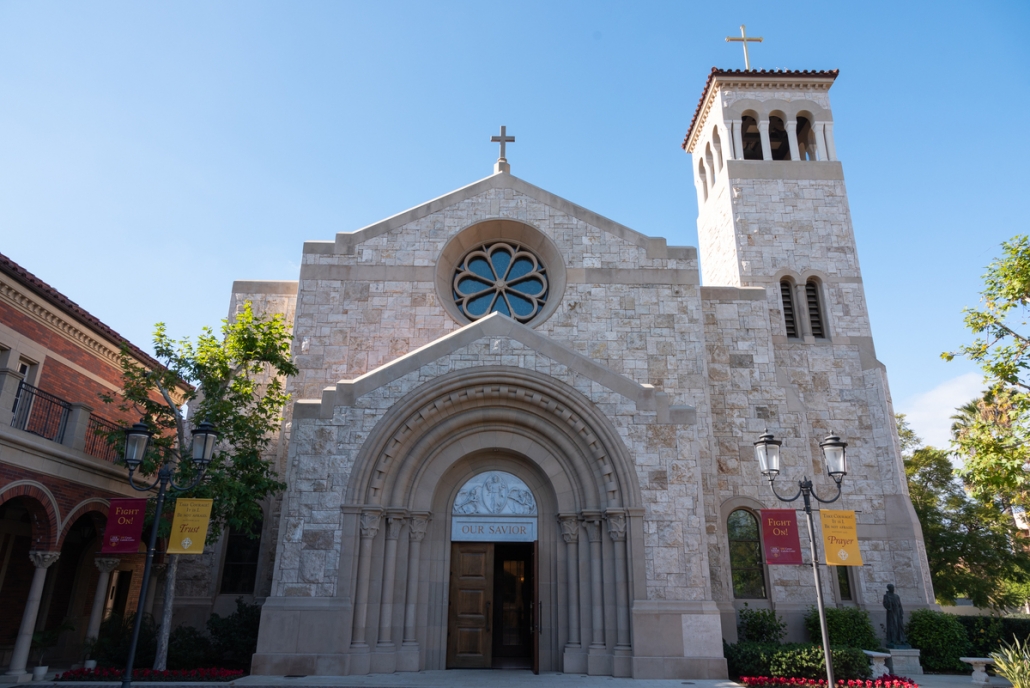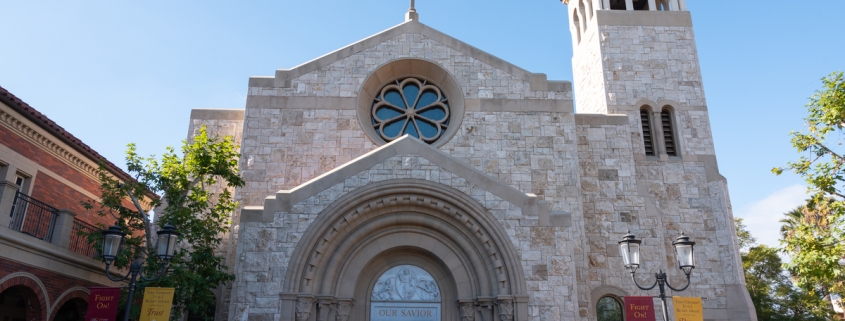Power outage impacts local student housing

As students walked up to the Caruso Catholic Center for 5 p.m. mass, they veered not toward the tall wooden doors of the church but toward the open doors of Newman Hall, where an altar was set up at the right of the room with stacked chairs forming small pews along the length of the room.
The Catholic Center experienced a five-hour-long power outage Sunday that affected the whole facility, along with other buildings on the north side of University Park Campus including student housing. According to the center’s Director of Campus Ministry Rosie Shawver, the 5 p.m. mass had to be moved to a different room in the building where the emergency lights were on.
“About 2 o’clock I got a message from our pastor saying that all the electricity was out … so we had to reconfigure and figure out how we’re going to make [mass] happen,” Shawver said. “I walked downstairs and I looked at [Newman Hall], and I realized that the emergency lights were on there … Thank goodness we moved it inside because outside, it would have been pitch dark.”
Students were alerted of the power outage at 2:30 p.m. through a TrojansAlert that informed students that the power was out north of 32nd Street in the area of Adams Boulevard between Magnolia Avenue and Figueroa Street. Power was restored at 7:30 p.m., although no public statement was made about the cause of the outage.
According to Los Angeles Department of Water and Power media representative Christina Holland, the power outage was caused by a faulty overhead switch to a power pole in need of replacement. Since the outage occurred in the winter, an overload of energy usage was not possible, Holland said.
LADWP also clarified rumors that the outage was caused by a balloon that hit the power lines. However, Holland urged individuals to be aware of how they dispose of balloons since they have caused power issues in the past.
“Once that [metallic substance of a mylar balloon] comes in contact with the [live electricity wire], it can cause a lot of damage,” Holland said. “Sometimes it’s minor, sometimes it’s more complicated, but we don’t want our lights to go out so if people can make sure they tie them down and when they’re done with them … dispose of them properly.”
Shawver noticed that throughout the time the outage occurred, affected students were attempting to find power outlets to charge their devices.
“I felt bad but I kept telling them to go to [USC Village] Starbucks and try to get some work done there and hopefully you can charge your stuff,” Shawver said.
Clara Miller, a junior majoring in design, who experienced the outage in student housing on West 27th Street, said that she and her boyfriend had to think of alternatives to getting work done without Wi-Fi.
“We started texting people in the building [if they had] power, what’s going on and no one else had power,” Miller said. “The Wi-Fi was down, which is really annoying because even to [replace the Wi-Fi] for watching stuff or even doing work, so what I did I used the hotspot I had … It was a little spotty but it worked and it brought us all the way [through the outage].”
Paulina Nuñez, a senior majoring in health promotion and disease prevention studies, said that the outage gave her a new outlook on how having electricity is a privileged part of her life that she had previously taken for granted.
“It made me feel really lucky that we do have power for 99% of time because a lot of people don’t have power in a lot of places,” Nuñez said. “People still keep living [without power], and it seems like it’s falling apart when it really wasn’t, it’s just hard to adjust.”
Miller said she had not been informed of the cause of the power outage and believes that the University should keep students updated with information regarding such events and develop preventative measures in student housing if an outage were to occur again.
“I think [USC Housing] should have at least backup generators, [because] stuff like this could happen a lot, especially in places where there are earthquakes,” Miller said. “We should also know what happened just to know [if it] was something really complicated was it a one-time thing or is it something that could be repeated … There’s so many different housing areas around USC that it’s hard to really take care of all of them.”

